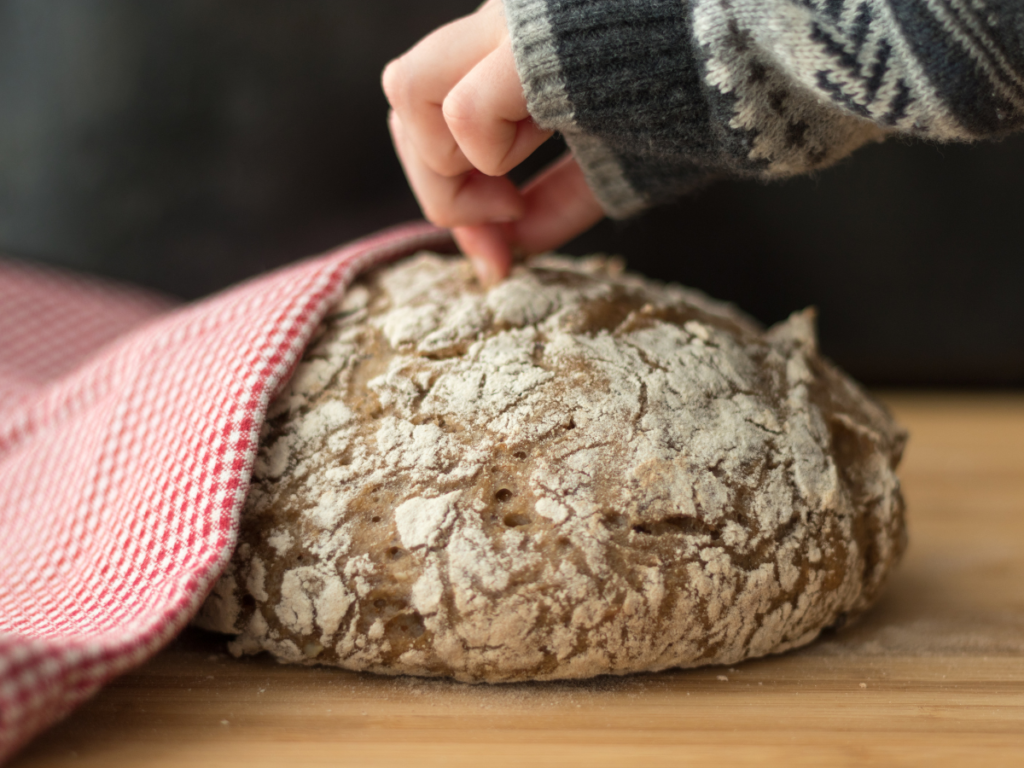
Introduction
For those with gluten intolerance or celiac disease, adhering to a gluten-free diet is crucial for their health and well-being. Gluten, a protein found in wheat, barley, and rye, can cause severe digestive issues and other symptoms in sensitive individuals. As gluten-free diets become more common, many people are exploring different types of bread that might fit their dietary needs, including sourdough bread. This article delves into whether sourdough bread is safe for those who need to avoid gluten and how it fits into a gluten-free lifestyle.
Understanding Gluten Intolerance
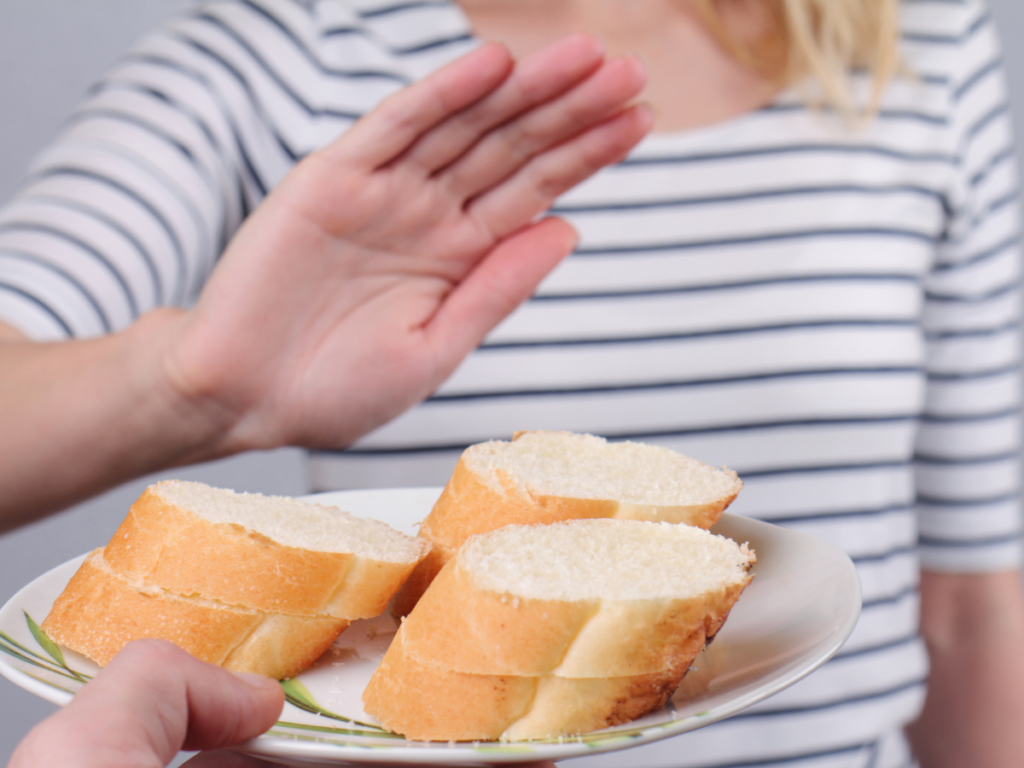
Gluten intolerance and celiac disease are conditions where the ingestion of gluten leads to adverse health effects. Symptoms can range from digestive discomfort to more severe reactions like malabsorption and nutrient deficiencies. For those diagnosed with these conditions, a strict gluten-free diet is essential.
Symptoms and Diagnosis
- Digestive issues: bloating, diarrhea, and abdominal pain.
- Nutrient deficiencies: anemia, osteoporosis.
- Other symptoms: fatigue, headaches, and skin rashes.
The diagnosis often involves blood tests and sometimes a biopsy of the small intestine. It’s crucial for those with these symptoms to consult with a healthcare provider for proper diagnosis and treatment.
The Importance of a Gluten-Free Diet
A gluten-free diet is essential for managing symptoms and preventing complications associated with celiac disease and non-celiac gluten sensitivity. This diet involves eliminating all sources of gluten, which can be challenging given gluten’s prevalence in many foods and products.
The Science of Sourdough Fermentation
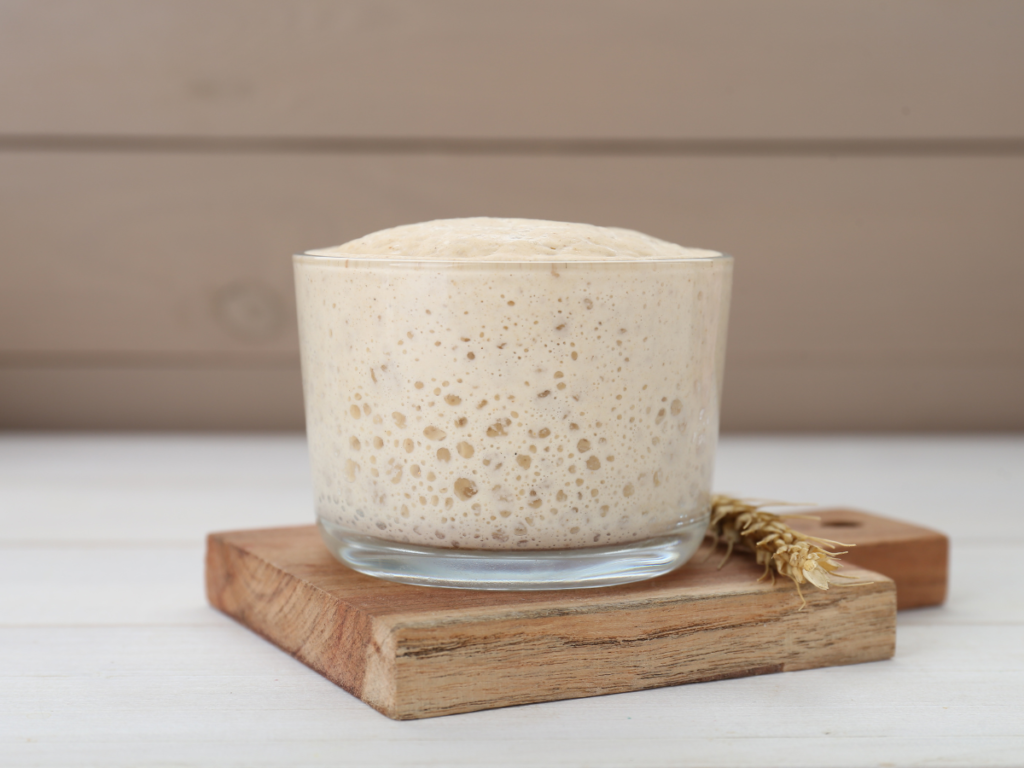
Sourdough bread undergoes a unique fermentation process involving lactic acid bacteria and wild yeast. This process not only contributes to the bread’s distinctive tangy flavor but also impacts the gluten content.
How Fermentation Affects Gluten
- Lactic acid bacteria help break down gluten proteins.
- Extended fermentation times can reduce the gluten content further.
- Enzyme activity during fermentation also plays a role in altering gluten structure.
Research on Sourdough and Gluten
Studies suggest that the fermentation process in sourdough can reduce the gluten content, making it potentially more tolerable for some gluten-sensitive individuals. However, it’s important to note that most sourdough bread still contains gluten and may not be safe for everyone.
Is Sourdough Bread Gluten-Free?
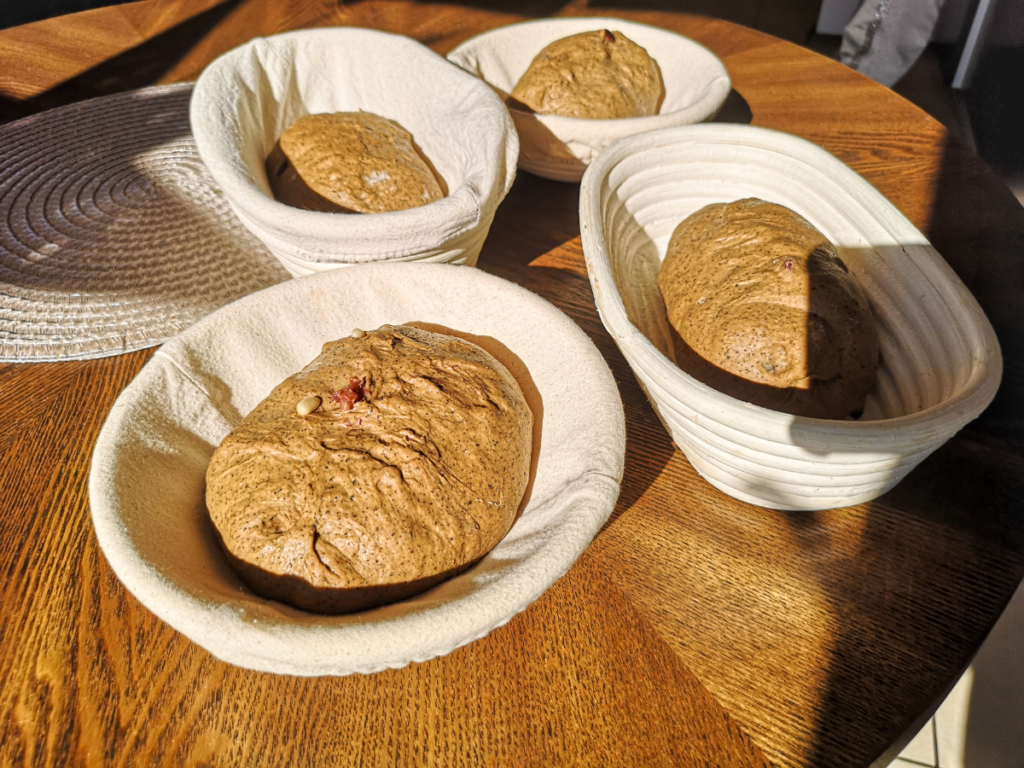
The simple answer is no, traditional sourdough bread is not gluten-free. However, the fermentation process does lower the gluten content, which can make it more digestible for some people with non-celiac gluten sensitivity.
Comparison with Regular Bread
- Lower gluten content: due to fermentation.
- Easier digestion: some find sourdough less likely to cause symptoms.
- Not suitable for celiac disease: even reduced gluten can trigger reactions.
According to Healthline, while sourdough bread is lower in gluten than conventional bread, it still isn’t safe for those with celiac disease.
Studies and Findings
Research indicates that while the fermentation process reduces gluten, the bread is not entirely gluten-free. Individuals with non-celiac gluten sensitivity might tolerate sourdough better than regular bread, but this varies from person to person.
Experiences of Gluten-Intolerant Individuals
Many people with gluten intolerance have shared their positive experiences with sourdough bread. Personal anecdotes and case studies suggest that some individuals do not experience adverse symptoms after consuming sourdough, likely due to its lower gluten content.
Testimonials
- Jane: “I have non-celiac gluten sensitivity, and sourdough is the only bread I can eat without feeling sick.”
These personal experiences highlight that sourdough can be a viable option for some, but it’s essential to consult with a healthcare provider before making dietary changes.
Medical and Expert Opinions
Experts are divided on the suitability of sourdough for gluten-intolerant individuals. According to Beyond Celiac, while sourdough is lower in gluten, it is not recommended for those with celiac disease.
Gastroenterologists’ Insights
- Dr. Smith: “Sourdough’s fermentation process can make it easier to digest, but it’s not completely safe for celiac patients.”
- Dr. Lee: “Patients with non-celiac gluten sensitivity might tolerate it better, but caution is advised.”
Dietitians’ Recommendations
- Moderation: even if tolerated, it should not be consumed in large quantities.
- Testing: monitor symptoms and possibly undergo gluten sensitivity testing with sourdough.
Making Gluten-Free Sourdough at Home
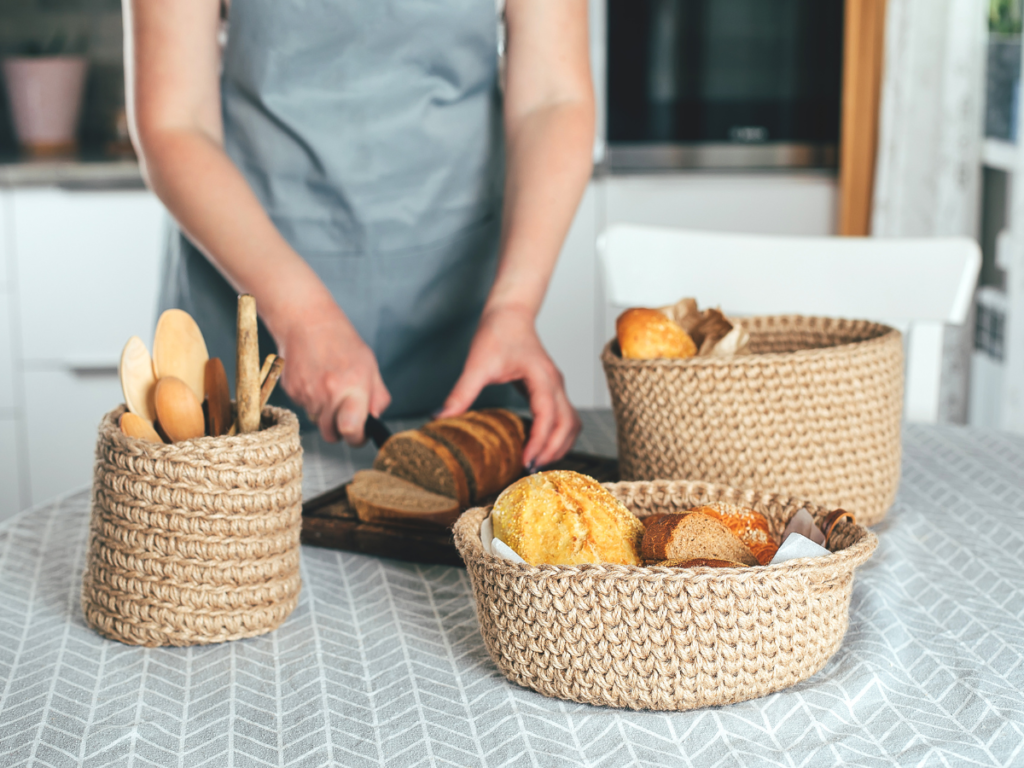
For those wanting to enjoy sourdough without the risk, making gluten-free sourdough at home is an excellent option. Here’s a step-by-step guide:
Ingredients and Tools
- Gluten-free flour: rice flour, almond flour, or a gluten-free flour blend.
- Sourdough starter: made from gluten-free ingredients.
- Basic tools: mixing bowl, kitchen scale, and a bread-proofing basket.
Steps to Follow
- Prepare the starter: Combine water and gluten-free flour, and let it ferment.
- Mix the dough: Add the starter to more gluten-free flour and water.
- Proof the dough: Allow it to rise until doubled in size.
- Bake: Preheat your oven and bake until golden brown.
For more detailed recipes, you can refer to gluten-free sourdough bread recipe.
Tips for Successful Gluten-Free Sourdough Baking
- Maintain a consistent temperature: Sourdough starters thrive at a stable temperature.
- Feed your starter regularly: Consistent feeding keeps the yeast active.
- Experiment with different flours: Gluten-free flours like buckwheat, sorghum, and millet can add unique flavors and textures.
Buying Gluten-Free Sourdough Bread

If baking isn’t your preference, you can find gluten-free sourdough bread in stores. Here’s how to identify it:
Trusted Brands
- Schär
- Canyon Bakehouse
- Simple Kneads
Reading Labels
Look for labels that specify “gluten-free” and check for certification from reputable organizations.
Local Bakeries
Some local bakeries may offer gluten-free sourdough options. Always inquire about their baking practices to ensure there’s no cross-contamination.
Potential Risks and Precautions
Even with lower gluten content, there are risks to consider:
Cross-Contamination
Ensure that the sourdough is made in a gluten-free facility to avoid cross-contamination.
Monitoring Symptoms
Keep track of any adverse reactions and consult with a healthcare provider if symptoms occur.
Moderation and Balance
Even if sourdough is tolerated, it should be consumed in moderation as part of a balanced diet.
Nutritional Benefits of Sourdough
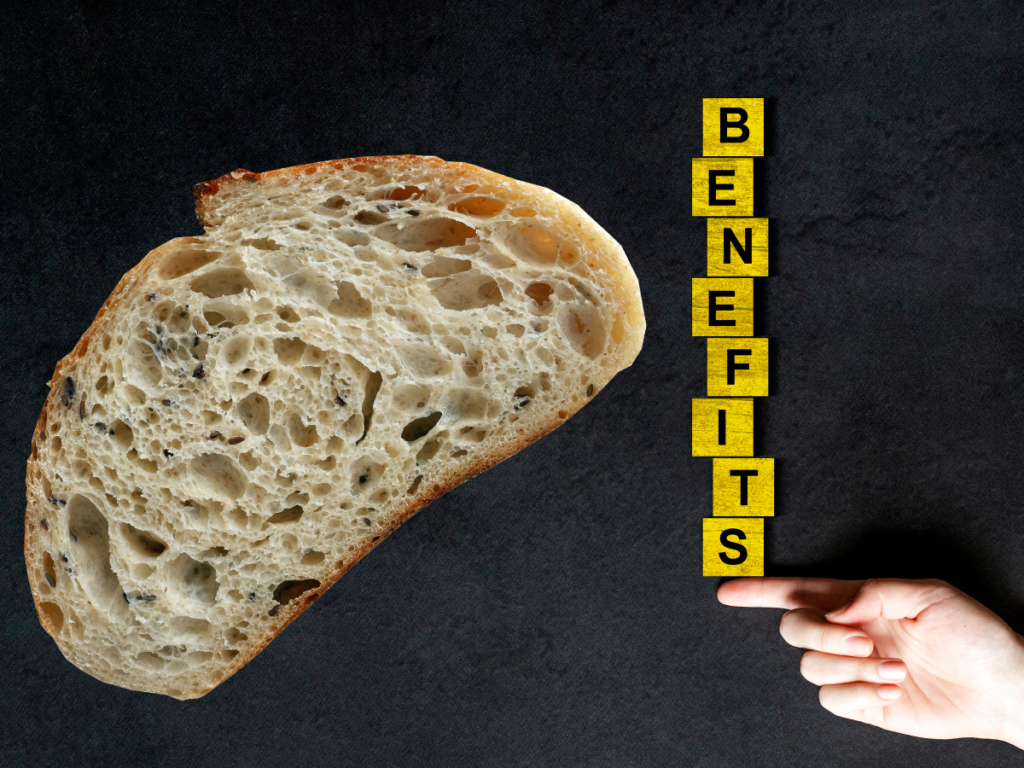
Sourdough bread, whether gluten-free or not, offers several nutritional benefits:
Enhanced Nutrient Absorption
The fermentation process in sourdough breaks down phytic acid, which can inhibit the absorption of minerals. This increases the bioavailability of nutrients in sourdough bread.
Lower Glycemic Index
Sourdough bread typically has a lower glycemic index compared to other types of bread, which means it has a slower, steadier impact on blood sugar levels.
Rich in Probiotics
The fermentation process also produces probiotics, which are beneficial for gut health. However, most of these probiotics are destroyed during baking, so sourdough’s probiotic content is not as high as other fermented foods.
Conclusion
While sourdough bread may be more tolerable for some with non-celiac gluten sensitivity, it is not suitable for those with celiac disease. The fermentation process lowers the gluten content but does not eliminate it entirely. For those who can tolerate it, sourdough offers a flavorful and potentially digestible option. Always consult with a healthcare provider before making dietary changes, and consider trying gluten-free sourdough recipes at home for a safer alternative.
For more information on maintaining a gluten-free diet, check out is sourdough bread OK if you are gluten-free.
Frequently Asked Questions
Can people with celiac disease eat sourdough bread?
No, even though sourdough bread has a lower gluten content compared to regular bread, it is not safe for those with celiac disease. The fermentation process does not remove all the gluten, and even small amounts can cause serious health issues for individuals with celiac disease.
Is sourdough bread safe for those with non-celiac gluten sensitivity?
Sourdough bread may be more tolerable for some people with non-celiac gluten sensitivity due to its lower gluten content. However, individual responses can vary widely. It’s important to listen to your body and consult with a healthcare provider if you have any concerns.
How does the fermentation process reduce gluten in sourdough bread?
The fermentation process in sourdough bread involves lactic acid bacteria and wild yeast, which break down gluten proteins over time. This process can reduce the gluten content, making the bread easier to digest for some individuals. However, it does not eliminate gluten completely.
Are there specific types of sourdough bread that are safer for gluten-sensitive individuals?
For those with gluten sensitivity, gluten-free sourdough made with non-gluten grains such as rice, sorghum, or buckwheat is a safer alternative. These breads do not contain wheat, barley, or rye, making them suitable for individuals who need to avoid gluten entirely.
How can I test if sourdough bread affects my gluten intolerance?
To test if sourdough bread affects your gluten intolerance, start with a small amount and monitor your symptoms closely. Keep a food diary to track your intake and any reactions you experience. Consulting with a healthcare provider or a dietitian can provide additional guidance and ensure you are managing your condition safely. They may also recommend specific tests to determine your sensitivity level.
Additional Tips for Managing Gluten Sensitivity:
- Read Labels: Always inspect food labels for hidden gluten sources.
- Cross-Contamination: Be aware of cross-contamination risks, especially when dining out or using shared kitchen appliances.
- Consult Professionals: Work with healthcare professionals to create a diet plan that meets your nutritional needs while avoiding gluten.
- Experiment with Alternatives: Explore gluten-free grains and products to find alternatives that you enjoy and that suit your dietary restrictions.
